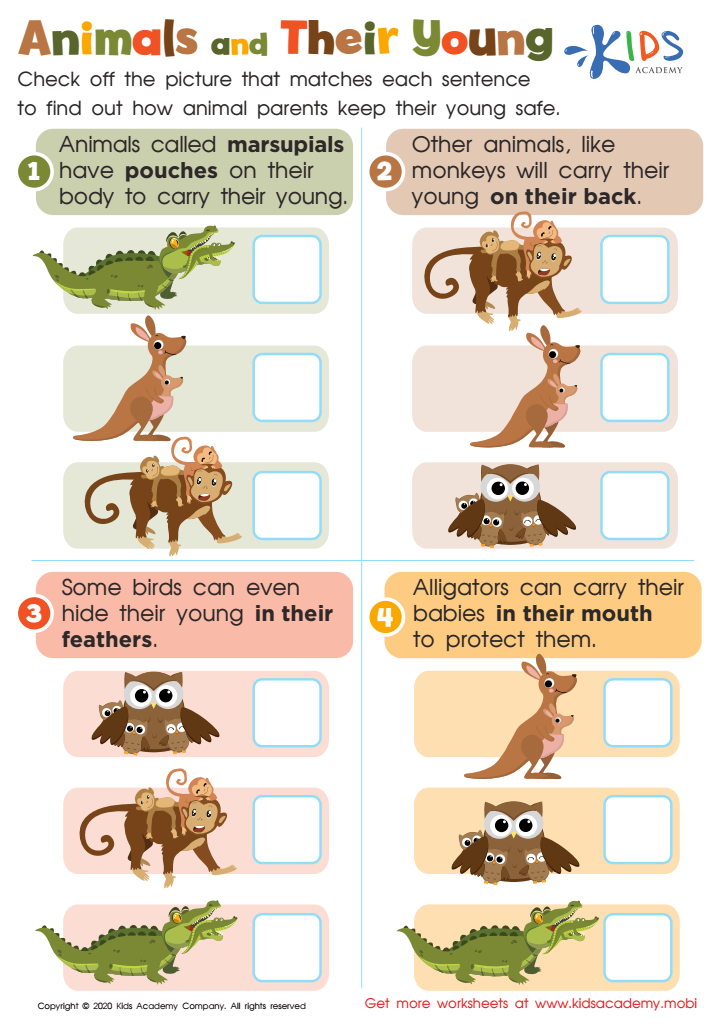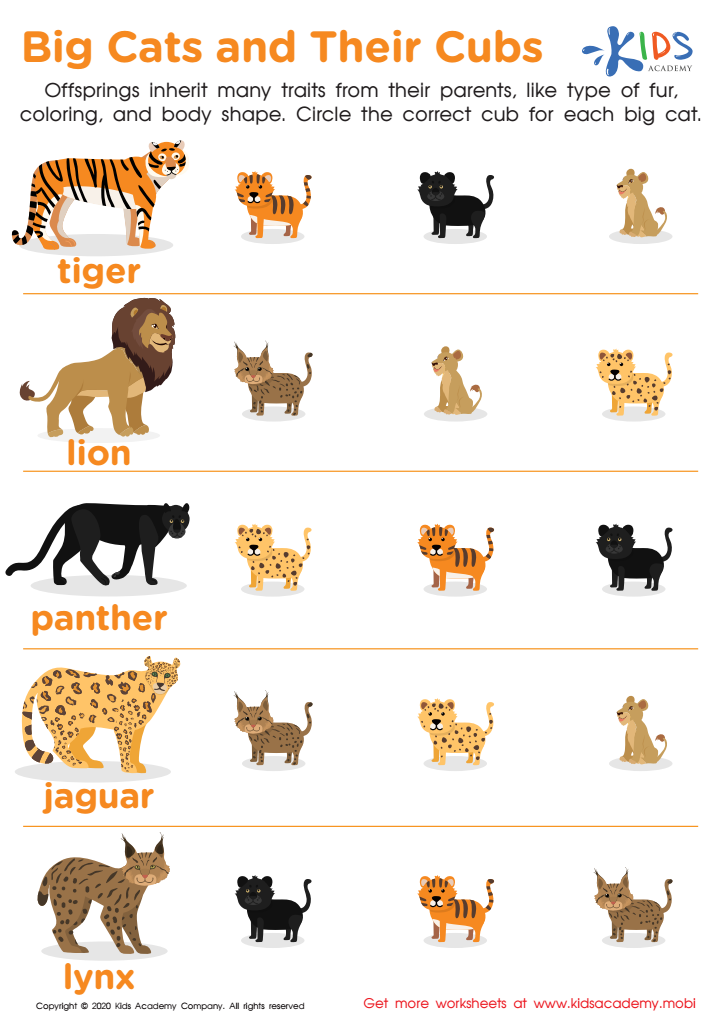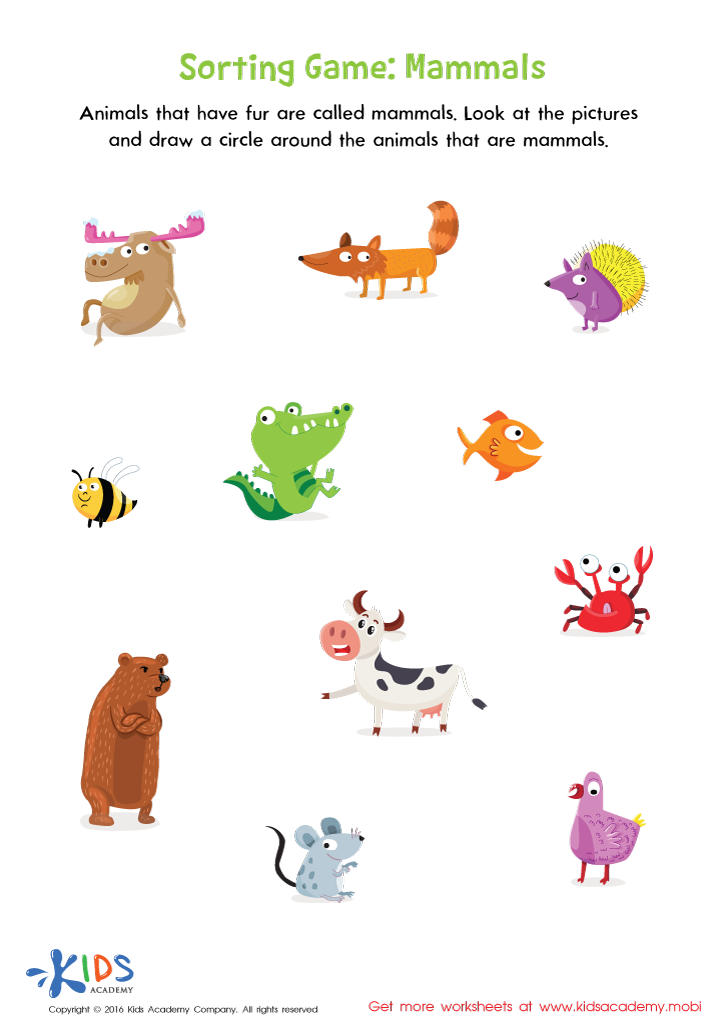Animal recognition Animals Worksheets for Ages 5-8
3 filtered results
-
From - To
Discover our engaging Animal Recognition Worksheets designed for children ages 5-8! These printable resources are perfect for young learners eager to explore the fascinating world of animals. Each worksheet features colorful illustrations and fun activities that help kids identify various animals, understand their habitats, and learn interesting facts. By combining artistry with essential science skills, these worksheets encourage creativity while enhancing observational abilities. Ideal for both classroom and home use, our Animal Recognition Worksheets ensure that children build foundational knowledge about the animal kingdom while enjoying a fun, hands-on learning experience. Start your child's adventure in animal learning today!


Animals and Their Young Worksheet


Big Cats and Their Cubs Worksheet


Mammals Sorting Worksheet
Animal recognition is crucial for children aged 5 to 8, benefiting their cognitive and emotional development. This stage is significant as children are naturally curious and eager to explore their environment. Understanding different animals promotes observational skills, enhances vocabulary, and fosters scientific thinking. When children can identify animals, they also learn about various ecosystems, promoting an appreciation for biodiversity and the importance of wildlife conservation.
Moreover, recognizing animals can enhance emotional intelligence. Familiarity with animals can facilitate discussions about feelings, friendships, and empathy, as children learn about the qualities and behaviors of different species. For instance, understanding a dog’s loyalty or a cat’s independence can create relatable contexts for social-emotional learning.
Additionally, recognizing animals can facilitate sensory engagement. Children often enjoy thematic lessons involving sounds, colors, and movements of animals, which can make learning fun and interactive. This engagement not only holds their attention but also instills creativity and imagination.
Parents and teachers, therefore, should prioritize animal recognition as it enriches the curriculum, addresses fundamental educational goals, and contributes to the holistic development of children. Engaging children in such explorations lays a strong foundation for lifelong learning and reinforces their connection with nature.

 Assign to My Students
Assign to My Students




















